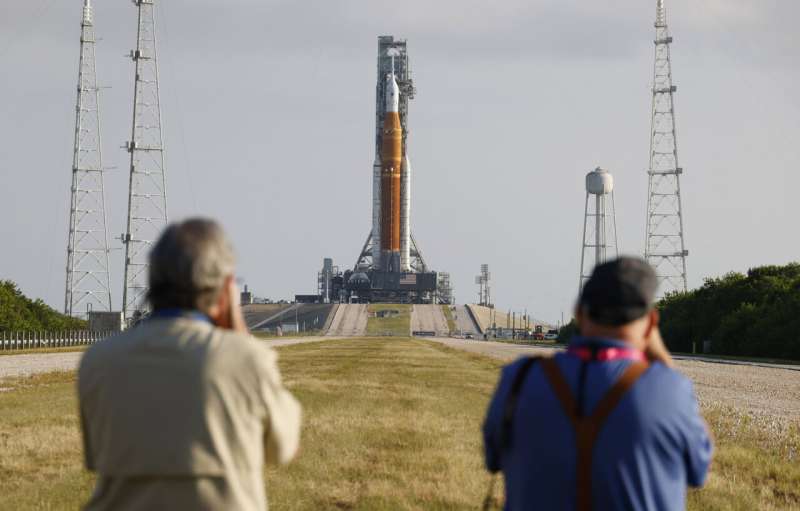It took nearly 10 hours for the rocket to make the four-mile trip to the pad, pulling up at sunrise.
NASA is aiming for an Aug. 29 liftoff for the lunar test flight. No one will be inside the crew capsule atop the rocket, just three mannequins swarming with sensors to measure radiation and vibration.
The capsule will fly around the moon in a distant orbit for a couple weeks, before heading back for a splashdown in the Pacific. The entire flight should last six weeks.
The flight is the first moonshot in NASA's Artemis program. The space agency is aiming for a lunar-orbiting flight with astronauts in two years and a lunar landing by a human crew as early as 2025. That's much later than NASA anticipated when it established the program more than a decade ago, as the space shuttle fleet retired. The years of delays have added billions of dollars to the cost.
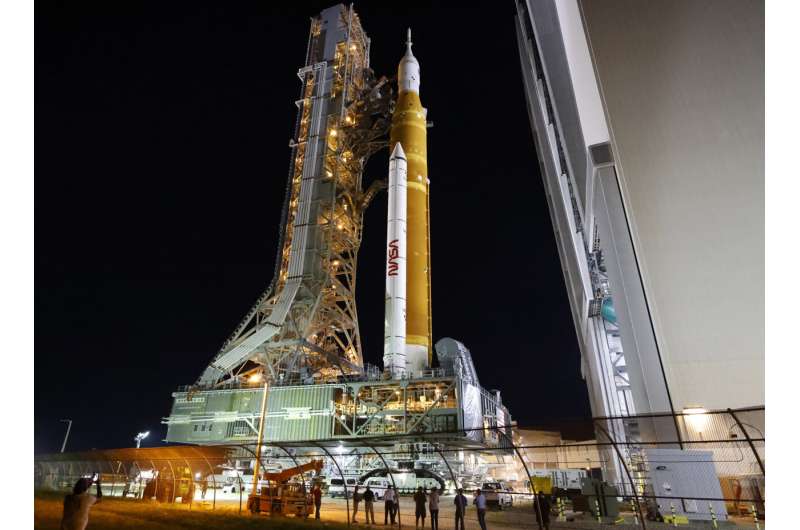
"Now for the first time since 1972, we're going to be launching a rocket that's designed for deep space," NASA's rocket program manager, John Honeycutt, said recently.
NASA's new SLS moon rocket, short for Space Launch System, is 41 feet (12 meters) shorter than the Saturn V rockets used during Apollo a half-century ago. But it's more powerful, using a core stage and twin strap-on boosters, similar to the ones used for the space shuttles.
"When you look at the rocket, it almost looks retro. It looks like we're looking back toward the Saturn V," NASA Administrator Bill Nelson told reporters earlier this month. "But it's a totally different, new, highly sophisticated, more sophisticated rocket and spacecraft."
Twenty-four astronauts flew to the moon during Apollo, with 12 of them landing on it from 1969 through 1972. The space agency wants a more diverse team and more sustained effort under Artemis, named after Apollo's mythological twin sister.
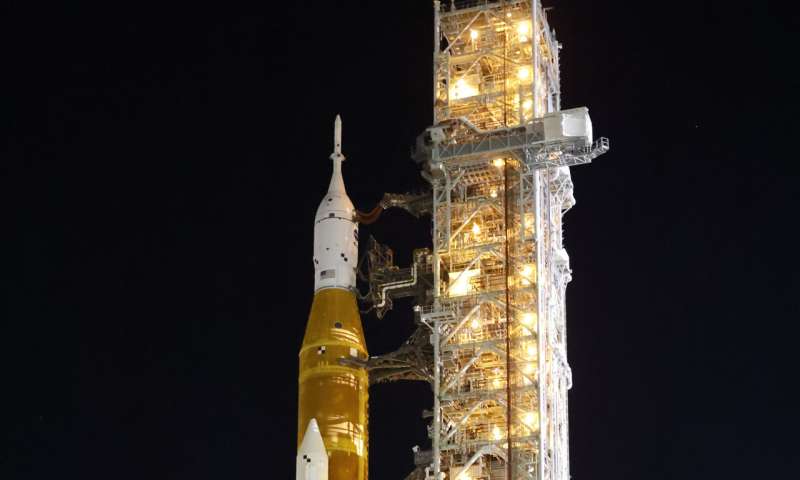
The NASA Artemis rocket with the Orion spacecraft aboard leaves the Vehicle Assembly Building moving slowly to pad 39B at the Kennedy Space Center in Cape Canaveral, Fla., Tuesday, Aug. 16, 2022. NASA is aiming for an Aug. 29 liftoff for the lunar test flight. Credit: AP Photo/Terry Renna 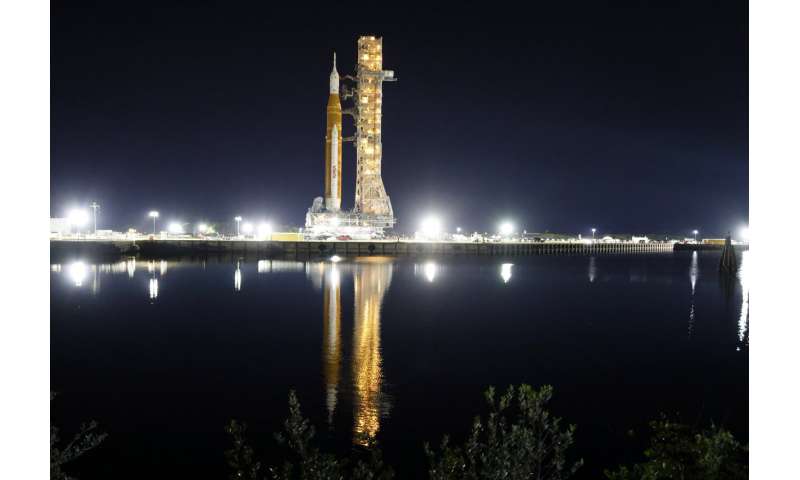
The NASA Artemis rocket with the Orion spacecraft aboard leaves the Vehicle Assembly Building moving slowly to pad 39B at the Kennedy Space Center in Cape Canaveral, Fla., Tuesday, Aug. 16, 2022. NASA is aiming for an Aug. 29 liftoff for the lunar test flight. Credit: AP Photo/Terry Renna 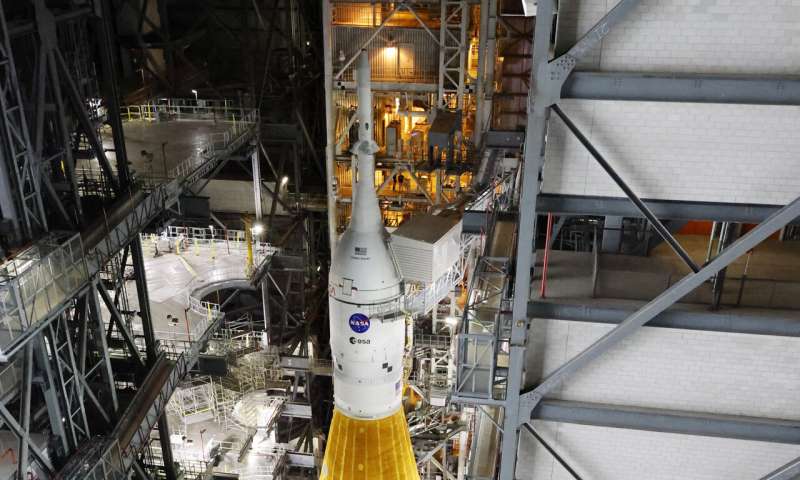
NASA's Artemis rocket, with the Orion spacecraft aboard, stands in the vehicle assembly building before rolling out to launch pad 39B at the Kennedy Space Center, Tuesday, Aug. 16, 2022, in Cape Canaveral, Fla. NASA is aiming for an Aug. 29 liftoff for the lunar test flight. No one will be inside the crew capsule atop the rocket, just three mannequins. Credit: AP Photo/Terry Renna 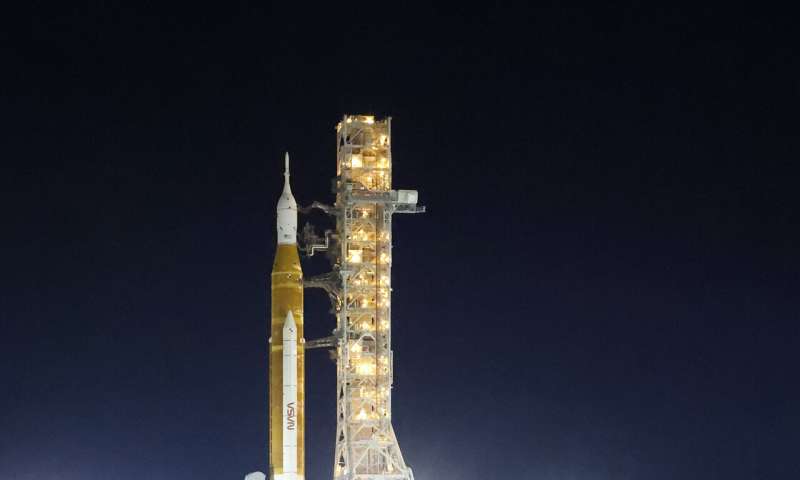
The NASA Artemis rocket with the Orion spacecraft aboard leaves the Vehicle Assembly Building moving slowly to pad 39B at the Kennedy Space Center in Cape Canaveral, Fla., Tuesday, Aug. 16, 2022. NASA is aiming for an Aug. 29 liftoff for the lunar test flight. Credit: AP Photo/Terry Renna 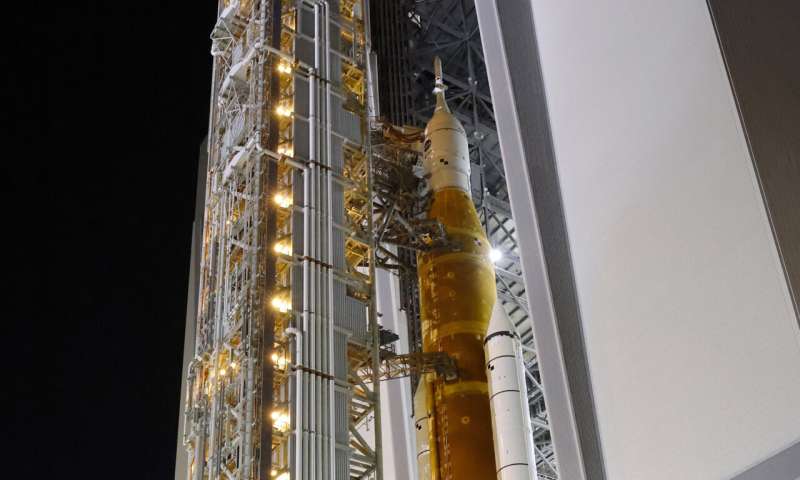
The NASA Artemis rocket with the Orion spacecraft aboard leaves the Vehicle Assembly Building moving slowly to pad 39B at the Kennedy Space Center in Cape Canaveral, Fla., Tuesday, Aug. 16, 2022. NASA is aiming for an Aug. 29 liftoff for the lunar test flight. Credit: AP Photo/Terry Renna 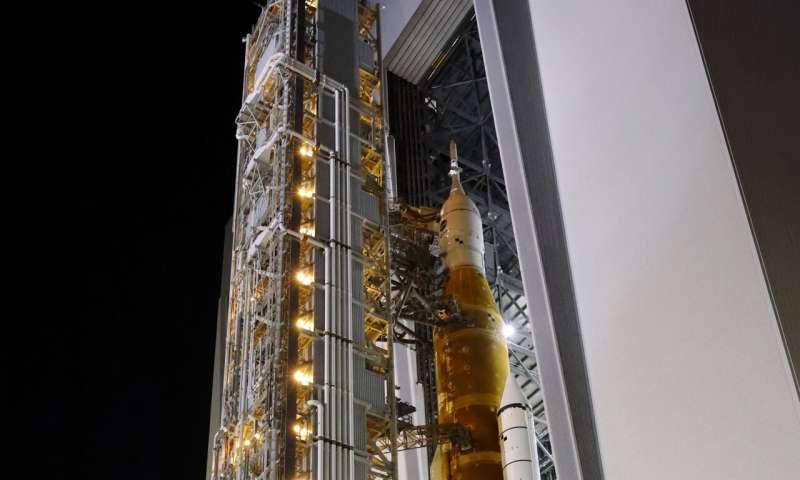
The NASA Artemis rocket with the Orion spacecraft aboard leaves the Vehicle Assembly Building moving slowly to pad 39B at the Kennedy Space Center in Cape Canaveral, Fla., Tuesday, Aug. 16, 2022. NASA is aiming for an Aug. 29 liftoff for the lunar test flight. Credit: AP Photo/Terry Renna
"I want to underscore that this is a test flight," Nelson said. "It's just the beginning."
This was the rocket's third trip to the pad. A countdown test in April was marred by fuel leaks and other equipment trouble, forcing NASA to return the rocket to the hangar for repairs. The dress rehearsal was repeated at the pad in June, with improved results.
Explore further
© 2022 The Associated Press. All rights reserved. This material may not be published, broadcast, rewritten or redistributed without permission.

